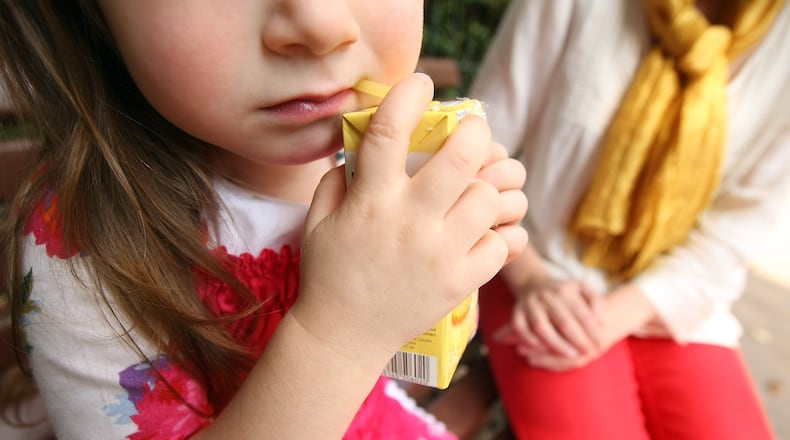Next time you're grocery shopping for your kids, think twice before adding a carton of fruit juice to your basket. The American Academy of Pediatrics has updated its guidelines on all juices, advising parents to pull back on how much they serve their little ones.
» RELATED: What Atlanta dietitians feed their kids
Previous recommendations said parents should wait to give their babies juice until after six months, but its latest update is suggesting that they wait one year.
In fact, infants should only be fed breast milk or infant formula for the first six months. After six months, moms and dads can then introduce fruit to their diet but not fruit juice.
“Parents may perceive fruit juice as healthy, but it is not a good substitute for fresh fruit and just packs in more sugar and calories,” said Melvin B. Heyman, MD, FAAP, co-author of the statement. “Small amounts in moderation are fine for older kids, but are absolutely unnecessary for children under 1.”
» RELATED: Should we slap a tax on sugary drinks?
Scientists laid out instructions for older children, too. Toddlers who are ages 1 to 4, should only have one cup of fruit a day. Four ounces of that can come from 100 percent fruit juice, but it should be pasteurized and not labeled “drink,” “beverage” or cocktail.”
For kiddies ages 4 to 6, fruit juice intake shouldn't exceed four to six ounces a day.
And the amount increases just slightly for children ages 7 to 18. They can have up to two and a half cups of fruit servings but only eight ounces of it should be juice.
»RECOMMENDED VIDEO: Why is fruit juice so bad your baby?
About the Author
The Latest
Featured



